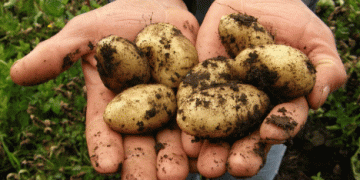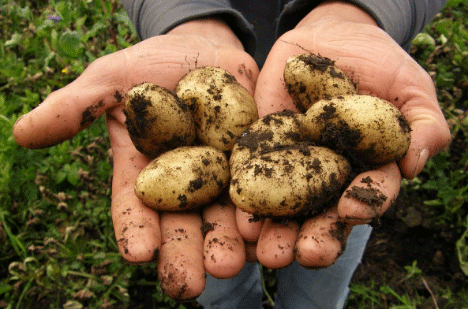As global temperatures continue to rise, staple crops like potatoes face significant threats. Researchers at the International Potato Center (CIP) in Beijing, led by molecular biologist Li Jieping, are tackling this issue head-on. Their studies reveal alarming trends for potato yields under simulated future climate conditions, but also highlight promising avenues for adaptation.
The Challenge of Heat Stress
Potatoes, a global staple, are particularly sensitive to heat. The CIP research team found that higher temperatures predicted for the late 21st century could cut potato yields by over 50%. Under these conditions, tubers weighed only 136 grams—less than half the size of typical potatoes in China, where varieties often exceed 300 grams. While the tubers reached maturity 10 days earlier due to accelerated growth, the smaller size and reduced yield present a stark challenge for food security.
Solutions in Development
To address these challenges, the CIP team is exploring several strategies:
- Heat-Tolerant Varieties: Using advanced molecular techniques, scientists are working to develop potato strains that thrive in higher temperatures.
- Optimized Planting Schedules: Adjusting planting times to avoid peak heat periods is another potential strategy.
- Aeroponics and Disease Resistance: The Yakeshi Senfeng Potato Industry is investing in aeroponic systems, which allow potatoes to grow in nutrient-rich mist environments. These systems not only conserve water but also support the development of disease-resistant varieties.
Implications for Global Agriculture
China, as the world’s largest producer of potatoes, plays a critical role in maintaining global food security. Innovations from projects like this could have far-reaching effects, providing valuable insights and technologies to farmers worldwide. Aeroponics, for example, could become a cornerstone of sustainable agriculture in regions where water is scarce and temperatures are rising.
Climate-Smart Agriculture
The findings published in Climate Smart Agriculture underline the urgency of integrating science and policy to mitigate the effects of climate change on agriculture. By prioritizing research and development, countries can help farmers adapt to shifting climates and maintain productivity.
The work being done by Chinese scientists to make potatoes climate-resilient is a vital step toward securing global food supplies in a warming world. Through innovative approaches like aeroponics and genetic advancements, these efforts demonstrate the power of science to address the challenges posed by climate change and sustain one of humanity’s most important crops.































